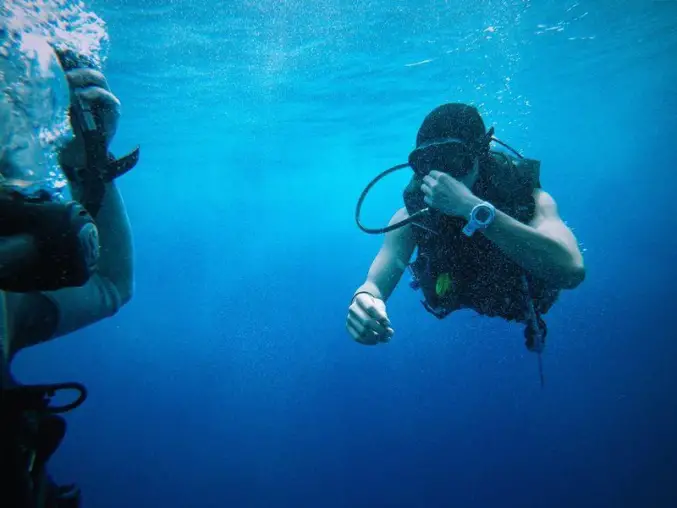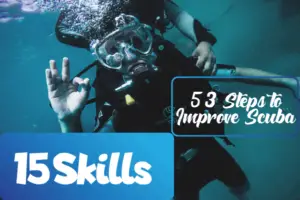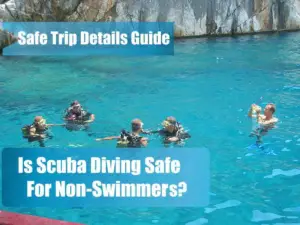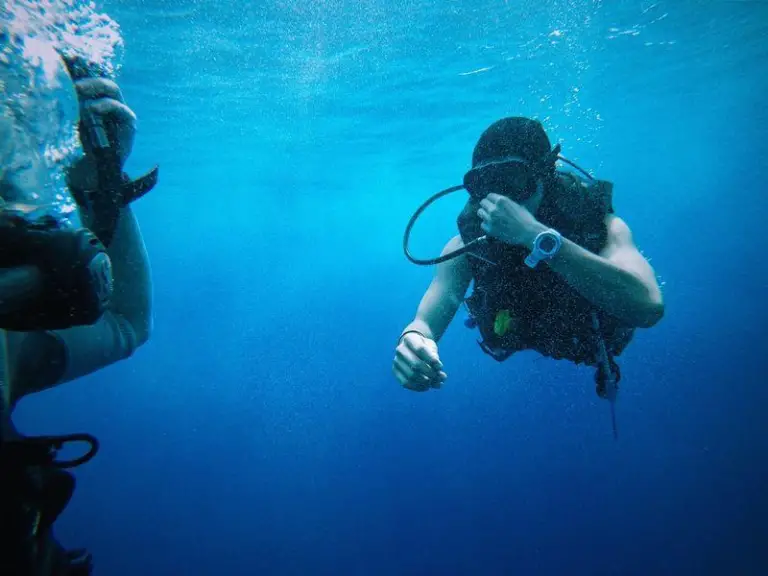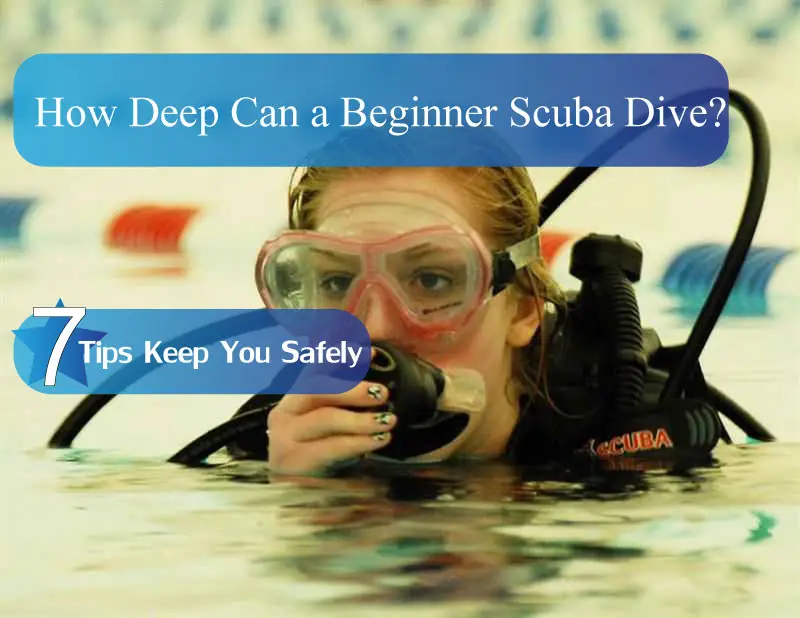
When my friend told me for the first time that he started his first dive as apart from his scuba diving course for beginners, I was totally inspired to do it myself, maybe both of us had different motives to start scuba dive but the common interest between us and most people who start diving is to know more about the nature, the motive to explore the secrets of the underwater life and the amazing feelings of digging deep in a world with no parries closest to be flying without the fear of gravity,
always what comes to my mind that digging deeper is the key to exploring more secrets, but the only problem is that I am just beginner that dreaming to dig as much as I can to have the best adventure safely
What is the maximum depth scuba beginner can dive to The maximum depth for you as a beginner which is according to PADI certification for recreational scuba diving is 40 meters/130 feet. The preferable depth for scuba beginners is the shallower than 18 meters/60 feet, Although these are the limits, some of the most popular diving is shallower than 12 meters/40 feet, where the water is warmer and the colors are brighter.

The reason why you can’t Dive deeper if you are a beginner?
beginners can’t exceed these limits due to oxygen toxicity; Boyle’s Law and how the changing pressures at depth impact gas volumes; decompression sickness or the bends; and nitrogen narcosis. in a situation of going over the limits, it may cause an emergency status for you. In an emergency situation at 40 meters depth,
we recommend you to stay calm, signal to your buddy that there is some problem and slowly surface together. Ask to share air if necessary, or signal to other divers or your divemaster for help. When for some reason your only remaining option is to surface, do so quickly while keeping an eye out for other divers with whom you can share some air and make a proper ascend.
Also, be aware that diving to 40 meters should only be done with the proper training and equipment. Plan your dive and dive your plan. If you run out of the air at 40 meters depth: do not panic and surface, but find your buddy, find your divemaster, or find other divers and share their air. Surfacing from 40 meters depth should be done as a last resort only and will very likely lead to severe injuries or death.
Record breaker, deepest scuba dive.
you may after reading that as a beginner you may feel 40 meters is not enough for your adventure and let me tell you it’s just a beginner you may hit a record like Ahmed, a 41 years old Egyptian, has broken the record for the deepest SCUBA dive, plunging an astonishing 332.35 m (1,090 ft 4.5 in) in the Red Sea off the coast of Dahab, Egypt. or you may be the one who will hit the upcoming record.
How to stay safe during your dive
with all the baby steps you will take as a beginner the key of enjoyment and success in the dive environment is your confidence, as well as your focus, you may feel it’s a big deal to control all the equipment you hold under the water but it’s okay when you start learning step by step you will begin in a closed area like a swimming pool; some sort of area the dive site will be shallow enough to stand up in.
not to mention that it’s totally normal that you feel the breathing through the scuba regulator is strange or uncomfortable this is only at first and your trainer will help you with that, here you are some safety steps you may need to know
1. first Plan your dive well
For your safety considers planning your dive in details. Although this is particularly important for difficult or deep dives or the deep you are new to it, it still applies to every dive that you do.
2. Check your equipment.
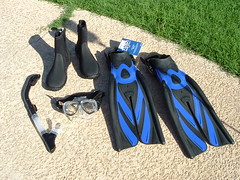
Your equipment underwater is the most important thing you have and it determines whether you will be safe or not, don’t be lazy toward checking all of your equipment before you dive at least by a week and make sure that fix anything that you need to be fixed.
Check your gear because underwater, your survival depends upon your equipment. Be focused when it comes to checking your gear before a dive. Conduct your buddy-check thoroughly if your or your buddy’s equipment malfunctions it could cause a life-threatening situation for you both.
Make sure that you know how to use your gear. The majority of equipment-related accidents occur not because of the equipment breaks but because of diver uncertainty as to how it works.
3. Test new equipment in a controlled environment
It’s natural to be excited to test out a new piece of equipment. However, in the interests of safety, it is always best to first test new equipment in controlled conditions. Your best option is to test it in a swimming pool. I
f that is not possible, then make sure that you use it during an easy shallow dive first. You don’t want to have to struggle with new equipment on a deeper dive.
4. Be ready for your dive

A part of being ready not only your tools but also your body, you need to be physically and mentally ready to dive. Remember that the first responsibility for your safety is on you so make sure that you don’t drink before your dive at least by 24 hours.
If you are feeling ill or otherwise unprepared to dive: listen to the messages that your body is sending you. It’s more important to miss a dive because you’re not feeling up to it than it is to take risks.
5. Dive within your limits
Under any circumstances don’t exceed your limits. If you are only qualified to dive to a certain depth, then ensure that the dive plan does not exceed that depth. This also applies to specialized diving that requires additional certification.
Do not attempt something like cave diving unless you have qualified by completing the relevant certification. There is no place for ego or bravado here.
6. Know the dive signals
Marine life enthusiasts often get excited about learning the signals for different species. However, the most important hand signals are those pertaining to safety. Make sure that both you and your buddy understand a comprehensive array of signals. Not being able to convey messages accurately and understand each other underwater poses a potential safety risk.
7. Take responsibility
Even if you are diving with a buddy or even a team, you need to take responsibility for your own safety. It is up to you to ensure that you follow everything that you have learned about safe diving. In this way, you will avoid endangering yourself, or the other divers accompanying you on the dive.
Scuba diving is considered as the adventure-land to sea explorers; however, you can’t enjoy this adventure without a full understanding and respect for the scuba dive environment.

.
We would like to know from you more about your first dive and what places you would be interested to dive in. Please feel free to ask any us any questions, Also, we would like to know what is the topics you would like to read about it regarding the scuba diving.

